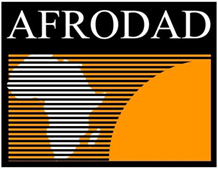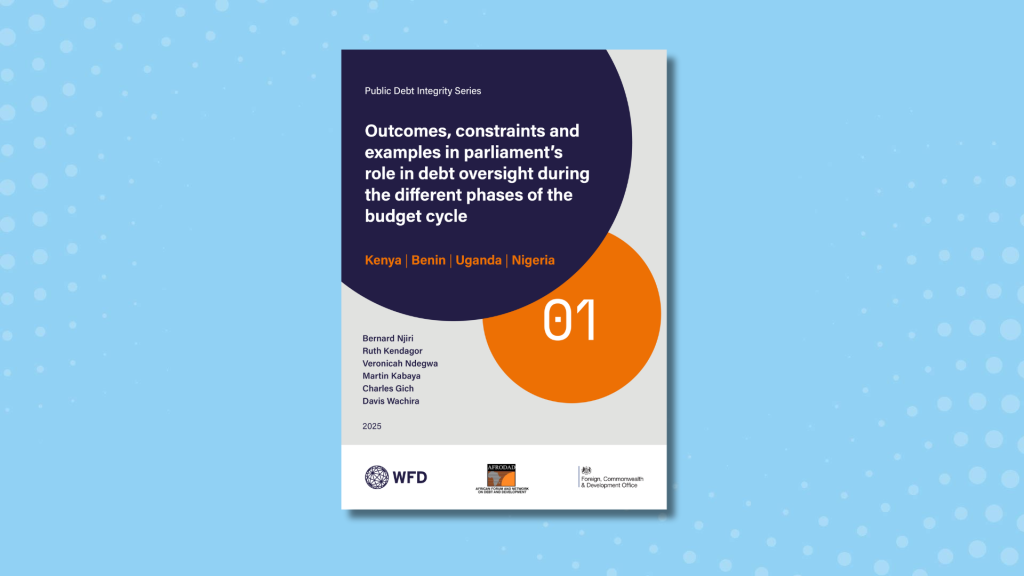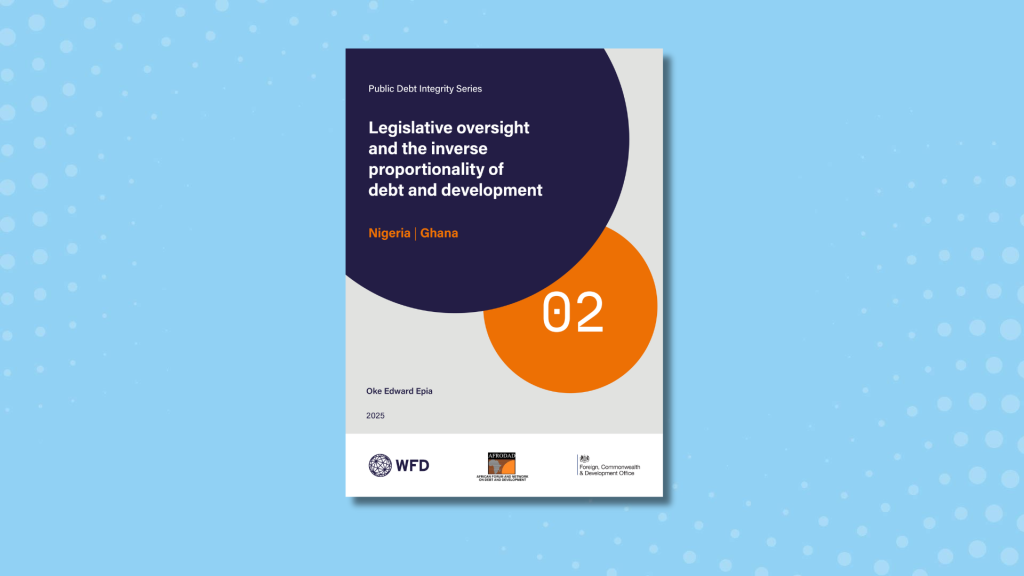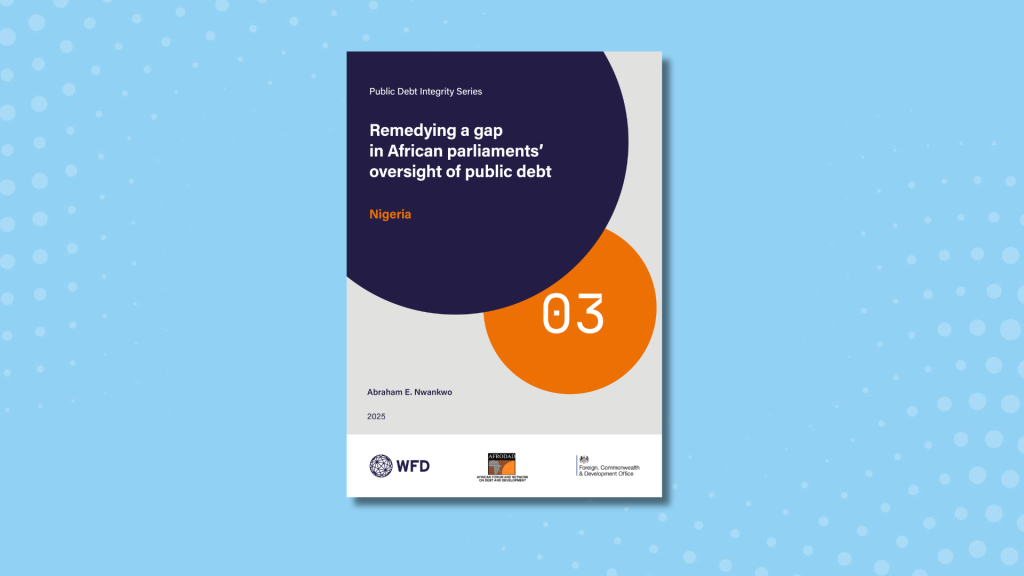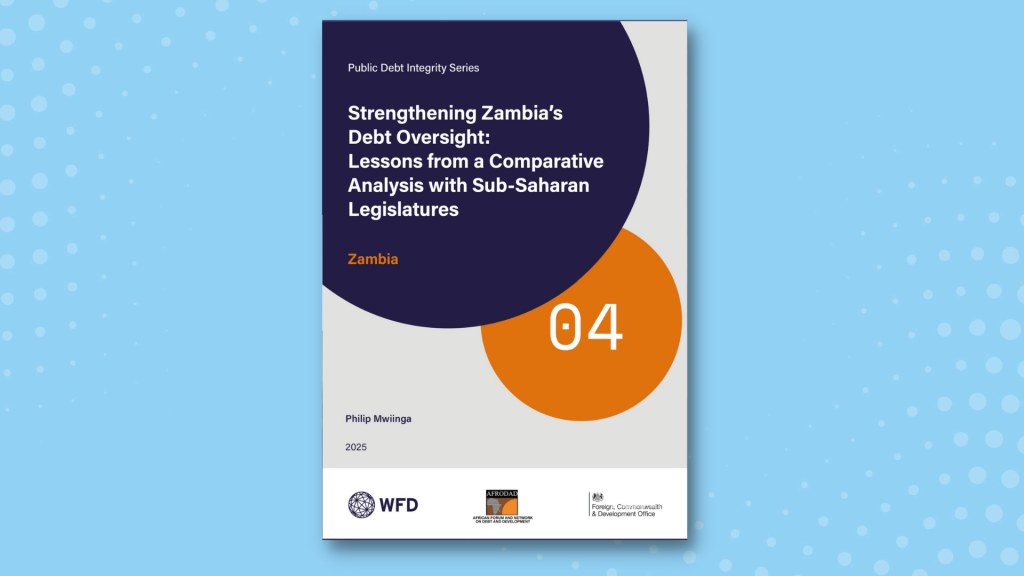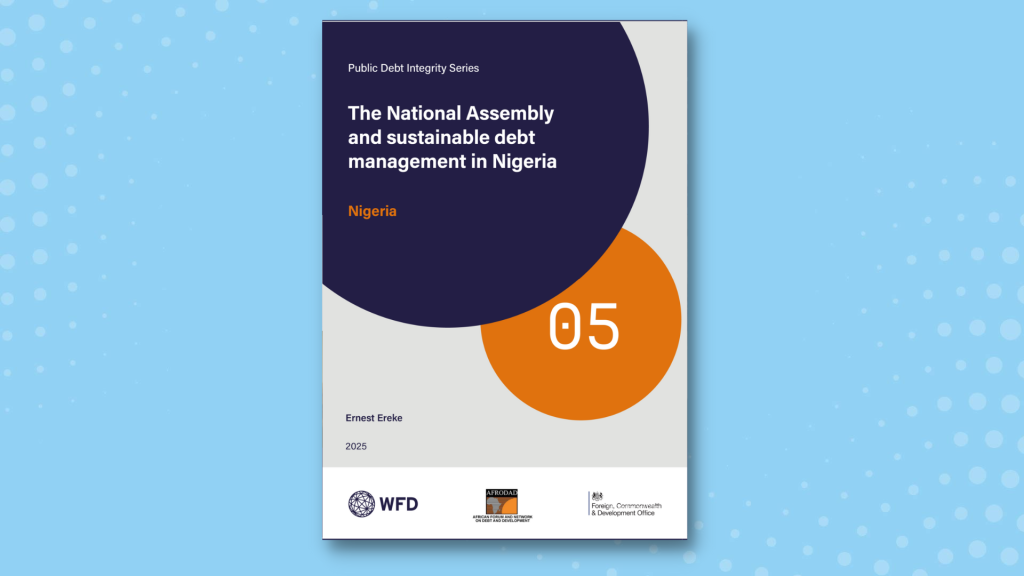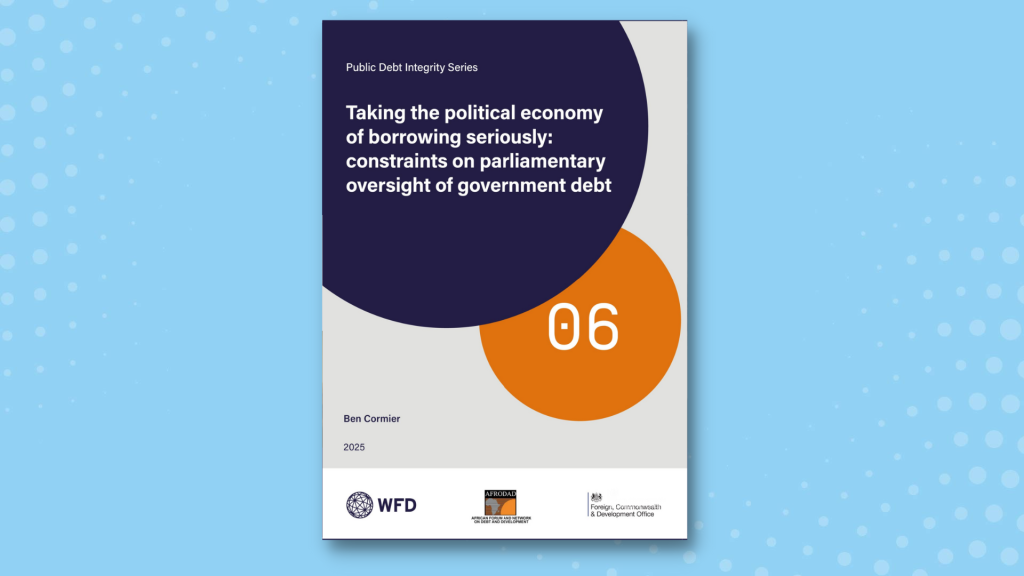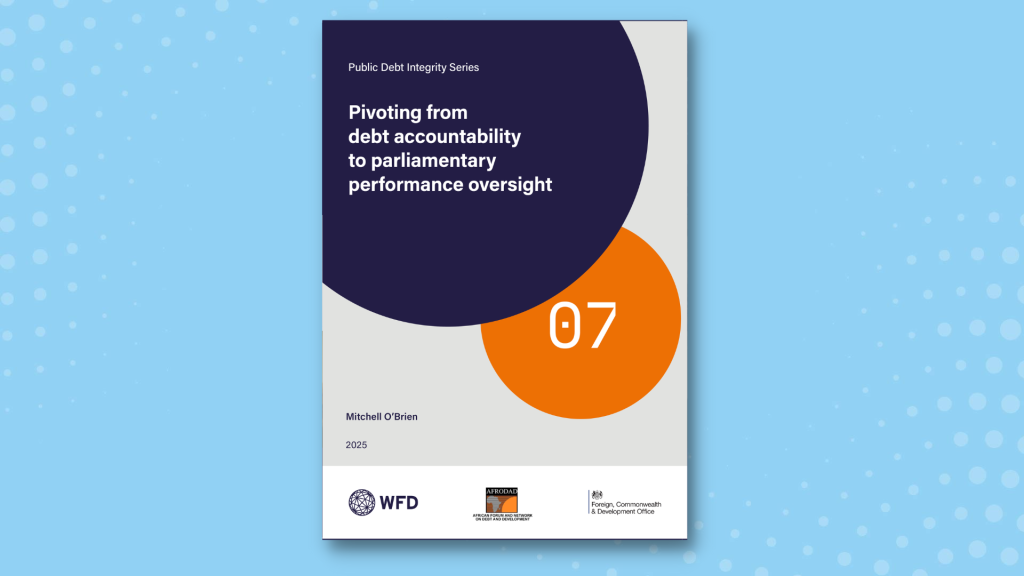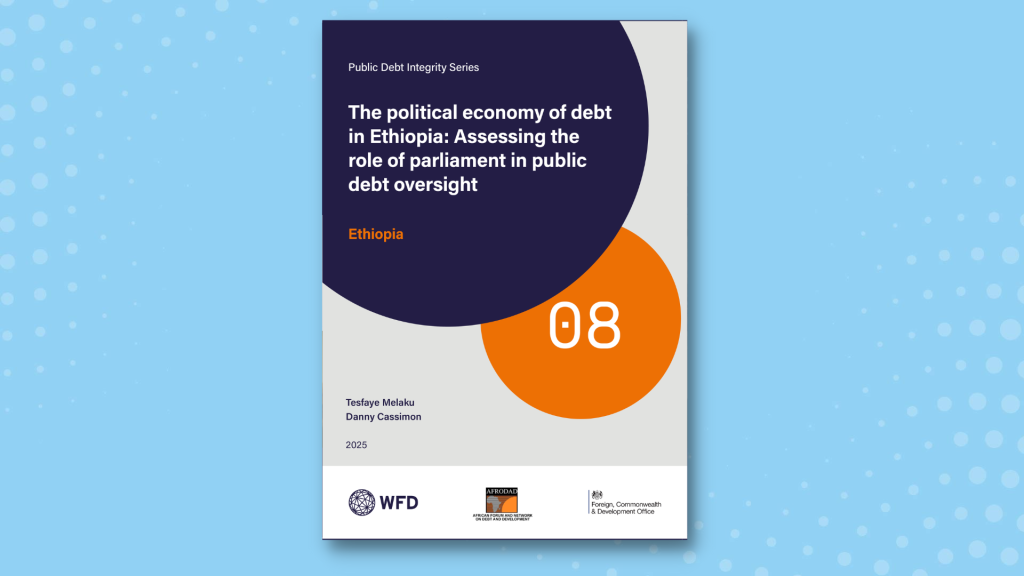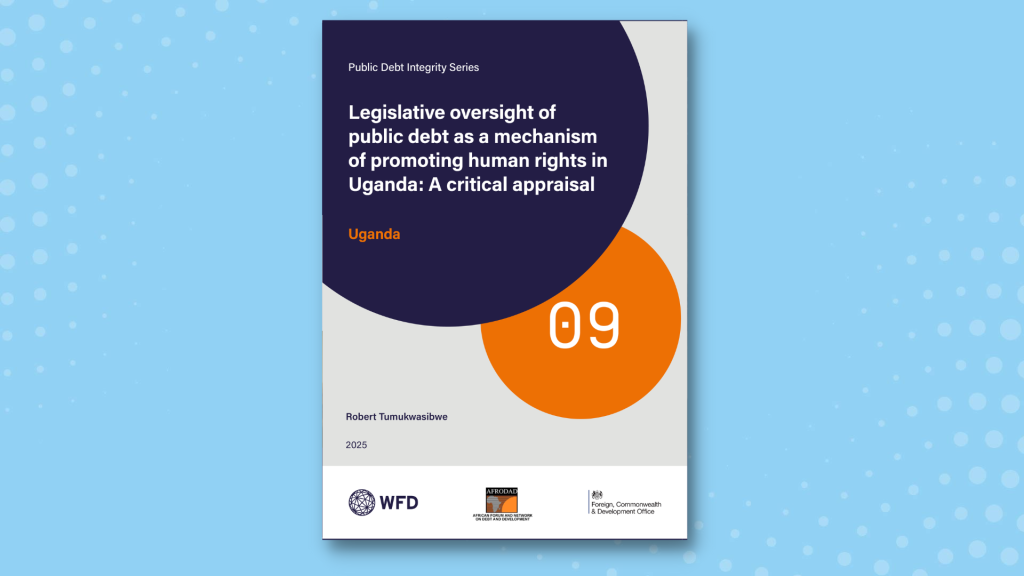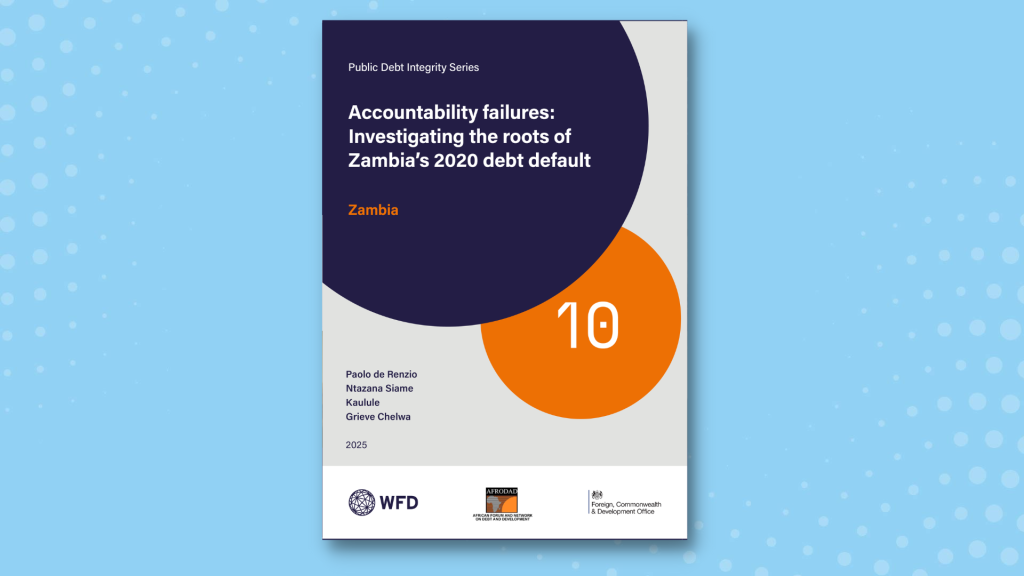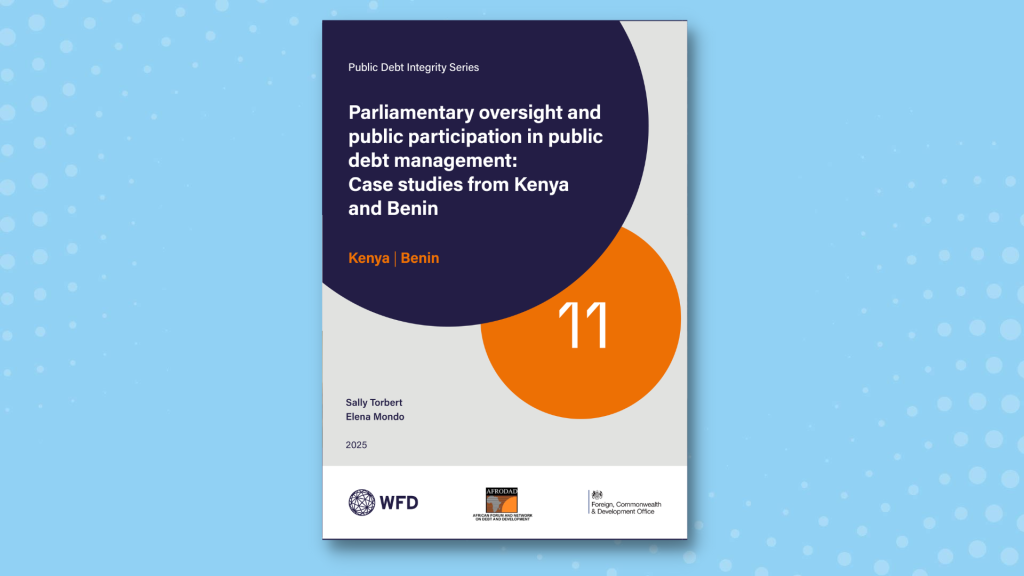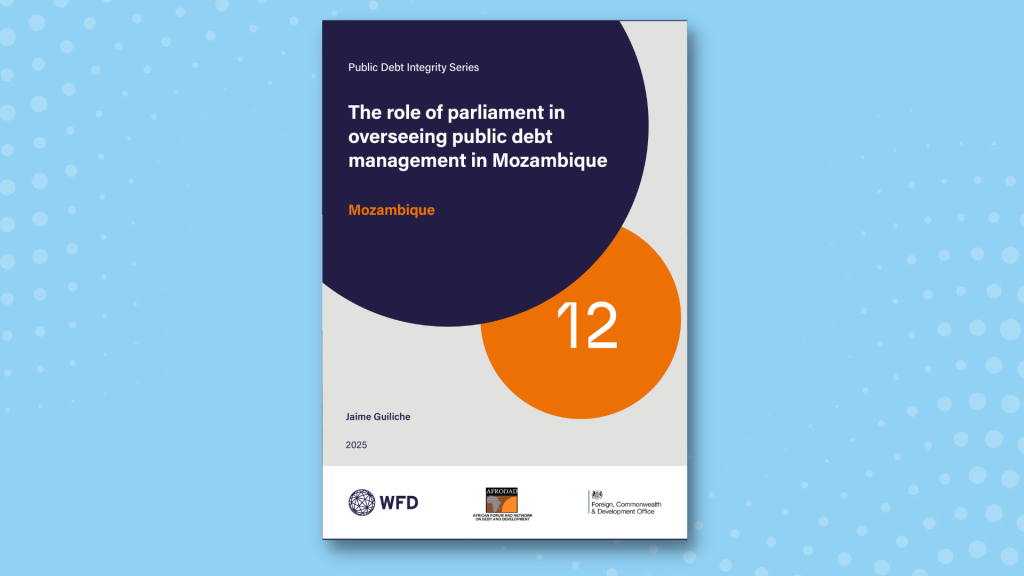About the series
This collection brings together 13 peer-reviewed papers examining parliamentary debt oversight across Africa. Authors include leading experts, practitioners, and academics who analyse current challenges and identify practical reform pathways.
The series is a joint knowledge building initiative of AFRODAD, the African Forum and Network on Debt and Development, and WFD.
Background
Unsustainable and untransparent public debt represents a democratic deficit and can lead to instability and social unrest sparked by fiscal cuts and increases to the cost of living. Effective parliamentary oversight isn't just about fiscal responsibility—it's about strengthening democratic governance itself.
The global debt crisis
The world faces a mounting debt crisis with severe consequences for development. Twenty-five of the poorest countries now spend more on debt repayments than on education, health and social policy combined, while 60% of low- and middle-income developing countries are highly debt vulnerable.
This crisis has complex origins, including global power dynamics, historical inequalities, governance decisions, climate impacts, and the compounding effects of recent global shocks—from COVID-19 to Russia's invasion of Ukraine.
The democratic deficit
Unsustainable and opaque debt undermines the social contract at the heart of democratic governance. Breaking this cycle requires a fundamental shift in oversight and accountability for how governments borrow and manage debt.
This is why we advocate for doing debt democratically.
The parliamentary solution
Parliaments—as representatives of people's interests, lawmakers, and agents of accountability—are critical fiscal policy institutions with unique oversight responsibilities. Yet their ability to exercise these responsibilities depends largely on debt transparency and institutional capacity.
WFD's research shows that effective debt governance requires:
- Transparent Debt Management Strategies
- Access to Annual Borrowing Plans
- Regular debt reporting
- Scrutiny of loan terms and conditions
- Oversight of contingent liabilities and State-Owned Enterprises
Explore the papers
AI podcast-style summaries
This episode draws on Dr. Abraham Nwankwo’s paper “Remedying a gap in African parliaments’ oversight of public debt”, highlighting practical ways to strengthen parliamentary scrutiny of public debt across Africa.
Based on a paper by Bernard Njiri, Ruth Kendagor, Veronicah Ndegwa, Martin Kabaya, Charles Gichu, and Davis Wachira, this episode examines how parliaments can oversee public debt effectively through each stage of the budget cycle.
This episode unpacks key insights from Ben Cormier’s paper “The Political Economy of Government Borrowing”, exploring the political and structural constraints that limit parliamentary oversight of government debt.
This episode draws on research by Sally Torbert and Elena Mondo, using country case studies by Jean-Pierre Degue and Ivy Kihara on how parliaments in Kenya and Benin engage with CSOs and the public to oversee public debt.

